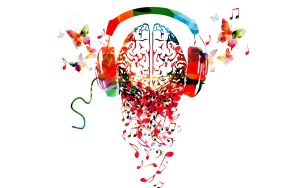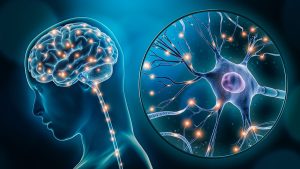Introduction
Music has been a part of human culture for thousands of years. It has the power to evoke emotions and to convey messages that other forms of communication cannot. Some individuals have a natural talent for music, while others may struggle to create melodies that make sense. Musical intelligence refers to the ability to create, analyze, and understand music. It is a skill that can be developed, honed, and improved over time. In this article, we will explore the concept of musical intelligence, the different types of musical skills, and how to develop your musical abilities.
Musical Intelligence
Howard Gardner, a Harvard psychologist, developed a theory of multiple intelligences, which suggests that people have a wide range of cognitive abilities. One of these intelligences is the musical intelligence. Musical intelligence refers to the ability to create, interpret, and conceptualize music. It involves recognizing different patterns in music, understanding rhythm and melody, and the ability to create and improvise music.
Individuals who have high musical intelligence often have a natural ability to identify and replicate the pitch, rhythm, and tone of melodies. They may have a good sense of timing and the ability to create music that evokes a particular emotion. Musical intelligence is not necessarily related to formal training or education in music. People who have musical intelligence can acquire and develop their musical skills over time, through practice and exposure to music.
Types of Musical Skills
Musical intelligence encompasses a variety of different skills, which include:
1. Music Creation
Music creation is the ability to create melodies, harmonies, and rhythms. It involves being able to use different instruments, including the voice, to create a piece of music from scratch. Individuals with this skill often have a natural ability to come up with melodies and can create and record music using different software applications.
2. Music Theory
Music theory is the study and analysis of how music works. It involves understanding the mechanisms behind melody, harmony, rhythm, and pitch. Individuals with musical intelligence can identify the different components of a piece of music and can use this knowledge to create their own music.
3. Music Analysis
Music analysis is the ability to break down a piece of music and understand how it is constructed. It involves recognizing patterns, chord progressions, and harmonies. Individuals with musical intelligence can analyze music to understand how it is constructed and use this knowledge to create their own music.
4. Music Performance
Music performance is the ability to play a musical instrument or to sing. It involves having a good sense of timing, being able to read sheet music, and the ability to create music that evokes emotions. Individuals with musical intelligence can interpret and perform music that resonates with the audience.
5. Music Appreciation
Music appreciation is the ability to listen to and appreciate music. It involves recognizing the different components of music, such as melody, harmony, and rhythm, and how they work together to create a final piece. Individuals with musical intelligence can appreciate different genres of music and can use this knowledge to inform their own music creation.
Developing Your Musical Intelligence
If you want to develop your musical intelligence, there are several things you can do:
1. Listen to Music
Listening to music is one of the best ways to develop your musical skills. Take the time to listen to different genres of music, paying attention to melody, rhythm, and harmony. Listen to the different instruments and try to understand how they work together to create a final piece of music.
2. Play an Instrument
Playing an instrument is another way to develop your musical intelligence. Choose an instrument that you are interested in and start practicing. Take lessons if necessary, and practice regularly. Over time, you will develop the skills needed to create and perform your own music.
3. Singing
Singing is another way to develop your musical intelligence. Join a choir or take singing lessons to improve your voice. Practice regularly and listen to professional singers to get inspiration.
4. Attend Concerts
Attending concerts is a great way to appreciate music and to learn from professionals. Go to concerts of different genres, and pay attention to the performance of the musicians. Listen to how they play their instruments and how they create different sounds.
Conclusion
Musical intelligence is a skill that everyone can develop. It involves being able to create, understand, and appreciate music. The different types of musical skills include music creation, music theory, music analysis, music performance, and music appreciation. To develop your musical intelligence, you can listen to music, play an instrument, sing, attend concerts, or take lessons. By doing so, you will improve your ability to create, perform, and appreciate music, enabling you to enjoy the many benefits that music has to offer.








